#Tianqi Emperor
Explore tagged Tumblr posts
Text
1620s tumblr simulator

🍷 librolibra Follow
Truly nothing worse than when another volume of Don Quixote gets translated and I have to deal with a flood of dumb Englishmen who don’t get any of the cultural context. This isn’t one of your little Shakespeare plays, it’s a profound meditation on Spanish values!
#libra speaks #miguel cervantes #don quixote #don quixote de la mancha #sancho panza #dulcinea del toboso
( 201 notes )

👨🏻❤️💋👨🏻 windmillboysfan Follow
if sanxote doesn’t become canon in this next volume i’m bringing a plague rat on my next trip to the continent
( 9,334 notes )

⚓️ devil-of-the-high-seas Follow

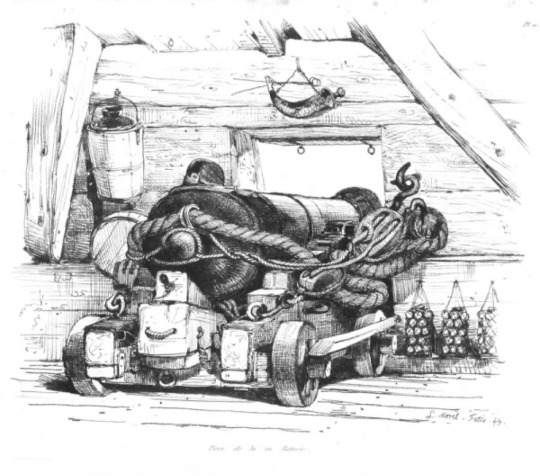
spent all me booty on some new toys
🦊 huanhuan Follow
i think i hauve the bubonic plague
( 763 notes )

🦆 yuanyangsword Follow
hey guys i think i’ve figured out why my sect leader insisted on rescuing this idiot scholar from the embroidered uniform guard
#it’s not THE stupidest rescue we’ve done but it’s up there #anyways i’ll investigate more and update when i’m sure
( 7 notes )

😈 heretics-bracket Follow
Vote to settle the Protestant question once and for all!
( 1,092 notes )

⚔️ the-wulinmengzhu Follow
pussy from a boy who failed the imperial exams four times and got last place on the fifth
⚔️ the-wulinmengzhu Follow
oh this is absolutely the wrong account
( 70,884 notes )

🦞 lobsterlord Follow
gave one of these mayflower guys some of my popcorn and he started giving thanks to god, instead of me, the one who made the popcorn and gave it to him.
( 71 notes )

🔘 egghead-official-deactivated16220217
eunuch wei just summoned me for a private conference. hopefully this is the promotion i’ve been working for!
( 24 notes )

⚒️ craftsmanfrombeijing Follow
Just added to my shop!!

🐉 tianqi-huangdi Follow
Beautiful work!!
🔘 egghead-official-deactivated16220217
for anyone who doesn't know, the emperor runs both accounts lol. one wonders how the mandate of heaven could rest on someone who prefers woodworking to governing. but of course that’s not for me to speculate
( 1,759 notes )

👨🏻❤️💋👨🏻 windmillboysfan Follow
apparently the notorious catholic l*brolibra is claiming to be a spanish noblewoman now? the TRUTH is she’s an eelmonger’s daughter and the poxiest wench in london, and i have proof
( 3,001 notes )
4K notes
·
View notes
Text
Yuanxiao
The following is a recipe as presented in Tasting History by Max Miller. If you enjoy it, I would highly encourage checking out the Tasting History youtube channel or buy the Tasting History cookbook.
From History The cooking method uses glutinous rice that has been ground into a fine powder. Inside the wrapper the filling comprises the flesh of walnuts and white sugar. Water is sprinkled on the filling and the balls are rolled around in flour to form them. They are as big as walnuts. This is the same as what the people of the Jiangnan region call tagyuan -Liu Ruoyu, Zhuo zhong zhi (translated by Roy Chan)
"Yuanxiao is a ball of glutinous rice stuffed with a sweet walnut filling, but it's the source of this seventeenth-century recipe, the Zhuo zhong zhi by Liu Ruoyu, that has a story worth telling.
The Ming Court, under the teenage Tianqi Emperor, was run by a powerful and scheming eunuch named Wei Zhongxian. Powerful and scheming eunuchs were actually quite the trend in Imperial China, but none were as formidable as Wei. He, along with the emperor's nurse, Madame Ke, removed all others who held power over the emperor. Some were banished, some starved to death, and others were forced to commit suicide. The pair kept the young emperor ignorant of the goings-on in his empire while they ran the government.
During Wei's reign of terror, a young eunuch named Liu distinguished himself as an excellent calligrapher, an uncommon skill among the eunuchs of the Forbidden City. His work caught the jealous eye of the illiterate Wei Zhongxian, who, unfriendly to any he believed smart enough to challenge his power, demoted the young scribe to work in the stables. Liu toiled there for several years and added the moniker Ruoyu, which meant "the dumb," to his name to remind himself that feigning stupidity might serve him better in the Wei regime.
But the powerful eunuch eventually found a use for Liu Ruoyu's talent: forgery. Wei had procured a number of blank documents already stamped with the emperor's seal. All he required to govern with impunity was for someone to fill the documents with whatever decrees he wished. Liu was just the man for the job.
The scheme did not last long though, for when the Tianqi Emperor died at the age of twenty-one his younger brother, Zhu Youjian, came to power as the Chongzhen Emperor. Though only sixteen, Zhu had not yet fallen under Wei Zhongxian's influence, and the new emperor banished the troublesome eunuch, executed Madame Ke, and imprisoned any who had helped Wei, including Liu Ruoyu. While in prison, Liu wrote the Zhuo zhong zhi, part protestation of his innocence and part treatise on daily life in the Forbidden City. His writings included a number of recipes, such as this one for Yuanxiao."
Modern Recipe
Ingredients:
1 1/4 cups (140g) whole shelled, raw, unsalted walnuts
1/2 cup (100g) granulated sugar
4 tablespoons (57g) unsalted butter, melted
2 cups (225 g) glutinous rice flour (sweet rice flour)
Makes 16 Yuanxiao
Cook time: 2 hours 15 minutes
Heat a large skillet over medium-high heat. Add the walnuts to the pan in a single layer. Heat them, stirring frequently, until lightly browned, about 5 minutes. Once the walnuts are toasted, remove them from the pan and set aside on a plate to cool, about 10 minutes. Once they are cool, crush the walnuts by hand or in a food processor, until they become almost a coarse flour.
Mix the crushed walnuts, sugar, and butter in a bowl until combined. Chill the mixture in the refrigerator for 1 hour.
Remove the mixture from the refrigerator and divide it into 16 portions. Using clean hands, roll each portion into a ball and set aside.
Fill a large bowl three-quarters full with cold water. In another large bowl, add the glutinous rice flour. Working in batches of 3 or 4 balls at a time, roll the balls in the flour until covered. Put the balls in a fine-mesh strainer. Dip the strainer with the balls briefly in the water, then return to the flour and roll again, coating completely. Repeat this process 7 to 10 times, or until there is no visible filling. Repeat the process until all the balls are coated. note that cracks may appear in the coating, but as long as the filling is not visible, that is okay.
Fill a large pot half full of water and set it over high heat. Bring the water to a boil. Working in batches, boil 3 or 4 balls until they float to the top, 2 to 3 minutes. Note that the balls will expand, so leave plenty of room in the pot. Once the balls have floated to the top, add a cup of cold water. The balls should sink a bit. Adding cold water will stop the boiling and allow a skin to form on the balls. Allow the water to return to a boil and wait until the balls float again. Remove the balls and set aside. Bring the water back to a boil and repeat the steps with the remaining balls until finished. Serve warm.
76 notes
·
View notes
Note
Hello! From what I see in your blog, you're very knowledgeable about the Eunuchs in TBOY and Dashing Youth. I'm having problem to identify who's who so I'm just wondering if you have a guide of their names, position, motives, appearance and short backstory? An appearance guide with DY and TBOY actors comparison will be very helpful. At first I thought Zhuoqing of DY is the same guy in the TBOY who also has white hair that keep helping the red prince but I'm afraid they are different people. I hope this is not too much to ask because I genuinely want to know about them but I always ended up confusing myself more. Have a nice day.
Hello, thanks for the ask! 😺 It always makes me happy to see people being curious about the Five Eunuchs! If you want to know more about them, you’ve definitely come to the right place! I’ll probably make a more comprehensive guide at some point, but I can offer a good bit of information here.
The Blood of Youth Eunuch Tree

To start with, here’s a guide to the Blood of Youth eunuchs and how they’re related. I explain more about it in this post: https://www.tumblr.com/feng-huli/753083060426293248/blood-of-youth-eunuch-tree
Now, for Dashing Youth, I’m afraid that I have less to offer, as not all of the eunuchs have appeared yet. Still, I can show the ones who have.
Zhuo Qing

First, we have Grand Eunuch Zhuo Qing. He is the shifu of the Blood of Youth’s Five Eunuchs (except for Jin Yan, who was taught by Zhuo Xin). He serves Emperor Tai’an and is fated to guard the Imperial Mausoleum when he dies. Needless to say, Zhuo Qing is far from pleased by such prospects and is fighting to change the future that has been written for him.
Jin Xuan


Next is Jin Xuan, who succeeds his role as Director of the Five Eunuchs. Growing up, he was the study partner of Xiao Ruojin (also known as Prince Jingyu, Emperor Mingde), and now serves as his most trusted companion and bodyguard, among other roles.
Jin Xian (Jade Deity, Shen Jingzhou)


Jin Xian is known as the Eunuch of Incense in Tianqi and Shen Jingzhou of the Blizzard Sword outside it.
Other


There’s also Eunuch Li (pictured left) and Eunuch Cheng (pictured right). Less is currently known about them, as they aren’t in The Blood of Youth.
The Blood of Youth Loyalties
Finally, for now, there is the matter of loyalties. The eunuchs are honestly some of the most complex characters in the Blood of Youth, and this chart merely touches on the alliances between the eunuchs and the royals. Jin Wei has assisted all of the princes, but I believe his devotion is to his shifu above all else. Meanwhile, Jin Xuan is… ambiguous. Even if his greatest affection is for his emperor, he is reluctant to put his whole heart into one person or cause.

I hope this was helpful!
#zhuo qing#jin xian#jade deity#shen jingzhou#jin xuan#five eunuchs#the blood of youth#shao nian ge xing#少年歌行#dashing youth#shao nian bai ma zui chun feng#少年白马醉春风#eunuch guide#my gifs#purple sweet potato essence
18 notes
·
View notes
Text
Okay I've finished The Blood of youth and in my opinion:
- the drama ended in the best way possible (we are ignoring episode 25/26) for our main character but its funnier when you think about how Xiao Lingchen told the late Emperor to pass on the throne to his least favourite son.
- before they revealed that he had written two edicts I was seriously wondering like "...do you really not like Xiao Chong that much old man???"
- but I'm glad he wrote two. man really said "go fight it out between yourselves"
- in all seriousness though, I think he did that because he trusts these two princes to be mature enough to not repeat his mistake. Also because both Xiao Se and Xiao Chong have proven that they are mature enough to lead Tianqi, no matter who ends up on the throne.
- and his trust was not misplaced! Xiao Chong didn't immediately announce the edict in his hands because 1. Xiao Se isn't even in the palace, 2. I'd like to think that he knows that Xiao Se has no intention of being Emperor, and would much rather roam the jianghu instead and 3. he wants to let Xiao Se announce it himself, whether he accepts or rejects the edict, instead of making that decision for him.
- I loved that Xiao Se was still himself at the end of the show, that he did not forget those who helped him along the way and did not lose himself in the (one-sided) bloodbath that Xiao Yu started.
- The only issue I have with the ending was that Zang Ming wasn't there when the edict was read out??? Dude did not sacrifice his eyes to be left out like that...


^ the contrast to the start!!
#also I was shook when Xiao Se actually bowed to him??#and the ending with Xiao Chong using a sword deity as a messenger had me cracking up#but it shows how much the wrathful sword deity dotes on his disciple and i love it#the blood of youth#xiao se#xiao chong#少年歌行#sorry if its incoherent im very tired rn
18 notes
·
View notes
Text

Back then, I was afraid those treacherous officials would lay a hand on you again. So I brought myself to evict you from Tianqi. Don't blame me for that.
The Blood of Youth, episode 34
His uncle already hinted at this, but I'm very glad that Xiao Se got a confirmation of his father's love for him from the Emperor himself.
9 notes
·
View notes
Text
Everyone says Xiao Jingyan is stubborn, however I imagine when the author of Shao Nian Ge Xing watched the show, his thought was likely to be "Not stubborn enough". Even after his father had made the greatest concessions possible, Xiao Se still refused to return to Tianqi. Even after a public admission of misjudgement and apology that's unthinkable for any emperor, Xiao Se was still disappointed in his father for letting the plot against uncle Prince of Langya to unfold and succeed because that's the easier option for him
#the blood of youth#shao nian ge xing#nirvana in fire#this is why he's in jianghu not on the throne#his behavior was out of line for any prince#but this is wuxia and he just happens to be a prince I guess
8 notes
·
View notes
Text
Blood of Youth recap - episode 14
Xiao Se asks Lei Wujie what he considers a hometown. Lei Wujie says it's a place you’re destined to return to and Xiao Se says Tianqi City is his hometown.
Xiao Se asks Sikong Changfeng if he thinks he should return to Tianqi City; he says yes, but that he won’t try to persuade him. He asks what Xiao Se thinks of Qianluo.
Xiao Se speaks to Wuxin in a dream, saying he’s troubled but doesn’t have any doubts.
Sikong Changfeng tells Lord Bai he supported Lord Langya two decades ago, not Lord Bai’s father, and he will support Xiao Se.
Xiao Se rejects the decree since no one else will fight for his uncle Langya and dares Lord Bai to kill him. Qianluo defends him against Zang Ming but Xiao Se is stabbed.
Lord Bai tells Zang Ming he already knew Xiao Se would reject the decree.
Lord Bai leaves Xueyue City and Shao Han sends him a message saying to proceed with the plan and go to Wushuang City.
Wuxin has a visitor (the man from the dungeon?) - Xiao Yu (Lord Chi), the seventh son of Emperor Mingde - who comes with Minghou and Yueji. Xiao Yu’s mother was Yi Wenjun (Consort Xuan) so he’s Ye Anshi’s half-brother. Luo Qingyang, the Lone Sword Deity and City Lord of Muliang City, was also in love with Yi Wenjun.
Wuxin says there’s no kinship between them but the idea of ruling the world by making Xiao Yu emperor is interesting. Xiao Yu asks Wuxin to stop or kill Xiao Chuhe. Wuxin says Xiao Se must not die.
Sikong Changfeng tells Tang Lian to escort Ye Ruoyi to the Tang clan for treatment. Xiao Se says he’ll go with Lei Wujie to a tournament at Lei Fortress.
Lord Bai meets Wushuang.
Qianluo meets Xiao Se on the roof, where he’s drinking. He tells her about Tianqi City.
Sikong Changfeng warns Xiao Se he’ll be in danger when he leaves Xueyue for the tournament.
Sikong Changfeng tells Li Hanyi Xie Xuan will also be at the tournament.
In Wushuang City, Wushuang tells Song Yanhui and Lei Yuzhen that Lord Bai learned his breathing technique from Jinyu and sword from Yan Zhantian.
Lei Wujie tells Xiao Se they’re going to Wangcheng Mountain to try to reunite his sister and Zhao Yuzhen.
Zhao Yuzhen tells Li Fansong Xiao Se tried to charge him 800,000 taels for the destruction of Dengtian Tower and asks if Li Fansong saw Li Hanyi in Xueyue.
5 notes
·
View notes
Text
Here are a few historical examples of palace intrigues:
1. Byzantine Empire: Empress Theodora and Justinian I
Context: Empress Theodora, wife of Emperor Justinian I, played a crucial role in the politics of the Byzantine Empire during the 6th century.
Intrigues: Theodora was involved in various plots and political maneuvers to secure her husband’s position and influence the empire’s policies. She is believed to have orchestrated the downfall of her political enemies and used her influence to advocate for women’s rights and social reforms.
Impact: Her actions helped maintain Justinian's power and significantly impacted Byzantine law and society.
2. Tudor England: Anne Boleyn and Henry VIII
Context: The rise and fall of Anne Boleyn, the second wife of Henry VIII of England, is a classic example of palace intrigue during the 16th century.
Intrigues: Anne Boleyn's relationship with Henry VIII led to the king's break with the Roman Catholic Church and the establishment of the Church of England. Her rise to power involved outmaneuvering Queen Catherine and numerous courtiers. Later, Anne fell victim to political plots and accusations led by Thomas Cromwell and others who saw her as a threat.
Impact: Anne Boleyn's execution marked a significant moment in English history, affecting the religious and political landscape of the nation.
3. French Court: The Affair of the Diamond Necklace
Context: This scandal in the 1780s involved Queen Marie Antoinette of France and a fraudulent scheme to acquire a lavish diamond necklace.
Intrigues: Jeanne de la Motte, a con artist, used forged letters and manipulated Cardinal de Rohan into believing that he was acting on behalf of the queen to purchase the necklace. The exposure of the scheme damaged Marie Antoinette’s reputation and added to the public’s growing discontent with the monarchy.
Impact: The affair contributed to the anti-monarchical sentiment that eventually led to the French Revolution.
4. Ming Dynasty: The Eunuch Faction
Context: During the late Ming Dynasty in China, the court was rife with power struggles between eunuchs and Confucian scholars.
Intrigues: Eunuchs, who held significant administrative power, often engaged in palace intrigues to control the emperor and manipulate state affairs. One notable figure was Wei Zhongxian, a powerful eunuch who dominated the court during the reign of the Tianqi Emperor.
Impact: The corruption and political infighting weakened the Ming government and contributed to its eventual collapse.
These examples illustrate how palace intrigues have shaped historical events and the balance of power within royal courts.
1 note
·
View note
Text

Switching Jin Yan and Wuchang Gui (both played by Xue Fei) would somehow be less chaotic, probably, since Jin Yan likely wouldn’t have the guts or desire to lead a movement of ghosts against someone as terrifying as Wen Kexing (he’d probably sooner try to win his favor and/or seduce him), and Wuchang Gui would either end up plotting with or against Jin Xuan (Wuchang Gui wouldn’t want to end up serving in the Imperial Mausoleum, of course, but he might not appreciate Jin Xuan being in charge of him. So, they either unite under a common goal or destroy themselves from within.)
Happy Ghost and Jin Xuan (both played by Yang Chaoran), meanwhile, would be incredibly chaotic if they switched places. Jin Xuan would probably come up with a better strategy for dealing with Wen Kexing than Wuchang Gui’s idea of selling themselves out to Zhao Jing, and might actually succeed in freeing the ghosts from the valley (Jin Xuan wouldn’t have any sentimental reasons that would discourage him from doing so, since he has no connections to the Five Lakes Alliance or its inhabitants, and, due to Happy Ghost’s reputation, would be viewed with hatred by them). Jin Xuan with Happy Ghost’s strength wouldn’t be able to defeat Wuchang Gui directly, so he would be inclined to assist him in strategizing and carrying out his goals. As for Happy Ghost being inside Jin Xuan’s body, there’s no limit to the chaos he would cause. He likes killing, and with Jin Xuan’s power level, he would be able to kill anyone he wants to. And, unlike Jin Xuan, he would have no reluctance in doing so. He’d bring smiles to everyone in Tianqi before the likes of Baili Dongjun could show up to stop him. That is, unless Happy Ghost’s bloodlust is fueled by people’s hatred of him, in which case becoming Jin Xuan would be a new start for Happy Ghost. His navigation of court politics would certainly be chaotic, as would his friendship with Jin Yan. The rebellion might still happen, but with Jin Yan as the sole plotter. It would probably even succeed, given that instead of protecting the Emperor like Jin Xuan did, Happy Ghost would kill him instead—if he doesn’t do it earlier.
It's really fun pointing at the screen and going 'hey it's that actor!'
(Or at least it is if you can tell the actors apart when they have a different hairstyle, which i can't. In that case a trusted friend helps)
But have you ever considered.
What if the two characters changed places?
#Jin Xuan and Happy Ghost switching places is the definition of chaos#the sheer difference in personalities#the power levels involved#and their potential team-ups#yang chaoran#the blood of youth#word of honor#poll
99 notes
·
View notes
Photo
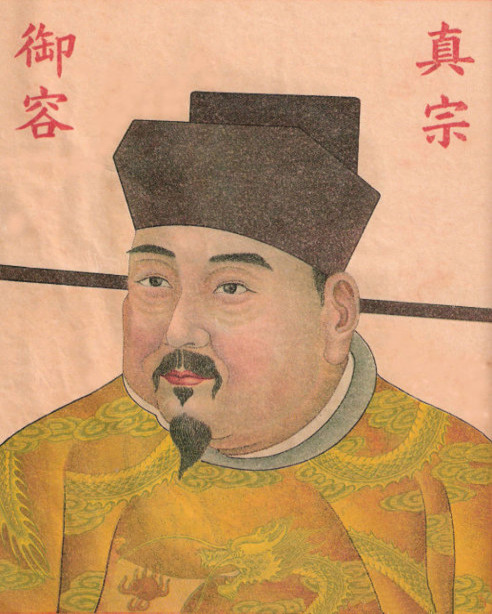
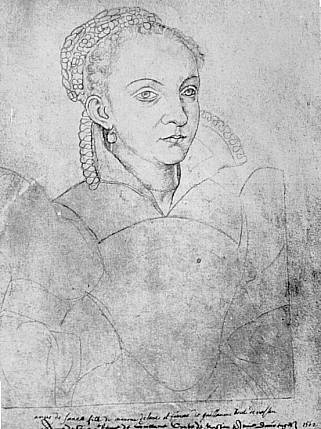
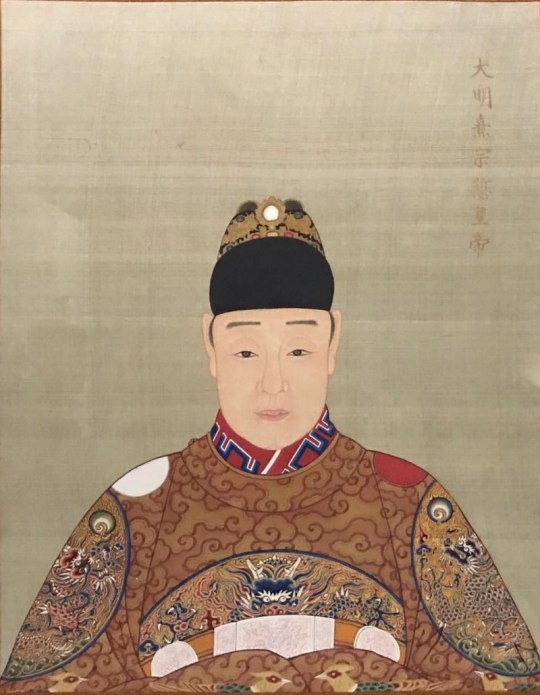
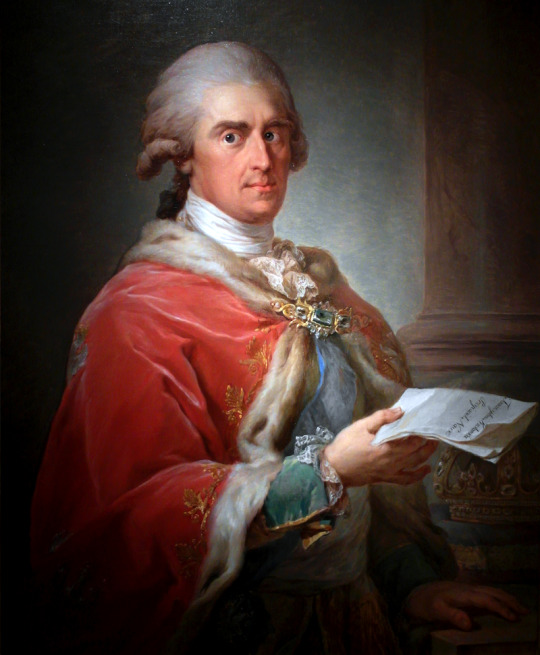



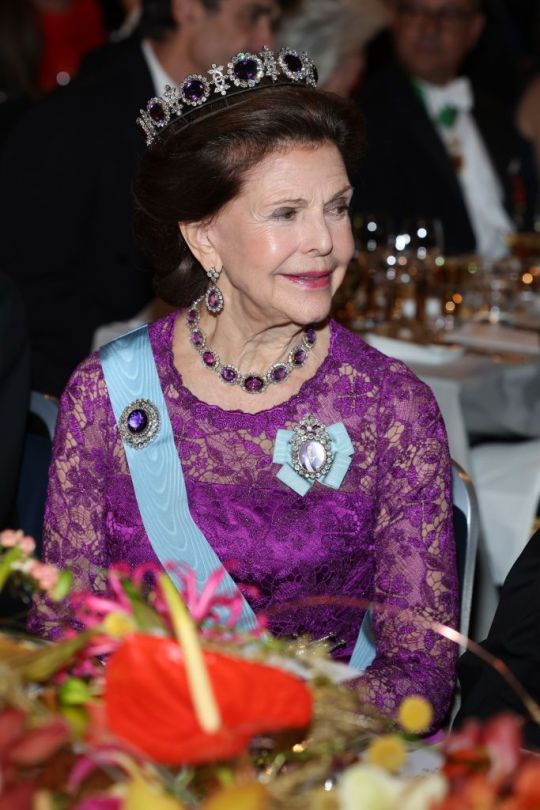


Royal Birthdays for today, December 23rd:
Zhen Zong, Emperor of China, 968
Anna of Saxony, Princess Consort of Orange, 1544
Tianqi Emperor, Emperor of China, 1605
Frederick Augustus I, King of Saxony, 1750
Alexander I, Emperor and Autocrat of All the Russias, 1777
Zorka, Princess of Montenegro, 1864
Akihito, Emperor Emeritus of Japan, 1933
Silvia, Queen of Sweden, 1943
Maria Vladimirovna, Russian Royal, 1953
Ali bin Al Hussein, Prince of Jordan, 1975
#queen silvia#maria vladmirovna#emperor akihito#alexander i#princess zorka#Ali bin Al Hussein#anna of saxony#emperor Zhen Zong#Tianqi Emperor#frederick augustus i#long live the queue#royal birthdays
36 notes
·
View notes
Photo


Tianqi Emperor (Zhu Youjiao) (deceased)
Gender: Male
Sexuality: Bisexual
DOB: 23 December 1605
RIP: 30 September 1627
Ethnicity: Han Chinese
Occupation: Emperor
#Tianqi Emperor#Tianqi#Zhu Youjiao#lgbt#lgbt history#male#bisexual#1605#rip#historical#asian#poc#chinese#royalty#Emperor#popular#popular post
120 notes
·
View notes
Text
looking at history it sure seems like whenever there’s a weak monarch and the dynasty is in decline it turns out that that monarch is bisexual. and i know it’s almost certainly because lots of monarchs were bi but historians only mention it when they want to badmouth him and put the full responsibility for the complex and lengthy decay of the social institutions of the empire onto his sole shoulders. after all, that makes a nice and neat narrative. when julius caesar’s contemporaries wanted to blame him for the decline of the roman republic they called him “every woman’s man and every man’s woman,” but once historians wanted to praise him as the father of the roman empire they all stopped mentioning his sexuality. from a rational perspective this makes a lot of sense. but it is kind of funny to imagine that the second the imperial crown hits a homosexual head all the imperial infrastructure spontaneously collapses
#like the han dynasty was on its way out before emperor ai and the ming dynasty was on its way out before the tianqi emperor#and nero did suck but also the julio-claudian dynasty didn't have many more emperors left in it#the thing about history is it’s historians who take care of it#ryddles
11 notes
·
View notes
Text
The Catastrophic Explosion of Beijing's Wanggongchang Arsenal, 1626
New Post has been published on https://china-underground.com/2020/11/22/wanggongchang-explosion/
The Catastrophic Explosion of Beijing's Wanggongchang Arsenal, 1626

The Great Tianqi Explosion or the Wanggongchang Explosion
The Great Tianqi Explosion (天啟 大 爆炸) or the Wanggongchang Explosion (王恭 廠 大 爆炸) was a catastrophic accident that occurred on May 30, 1626, the causes of which are still partially unknown.
Featured image: Illustration of the Wanggongchang incident.
Related article: 1490 Ch’ing-yang Meteor Shower
The explosion contributed to the weakening of the Ming dynasty, already tried by natural disasters, conflicts between factions, and popular rebellions, and was overthrown a few years later. In any case, the incident was so devastating that it overshadowed all other calamities and was interpreted as a punishment from Heaven, and as a warning to correct the sins derived from the emperor’s incompetence.
The incident occurred in a large gunpowder production center in Beijing during the reign of Emperor Tianqi of the Ming Dynasty and claimed the lives of around 20,000 people and could have been caused by some error in the production process or by sabotage.
The Wanggongchang Arsenal, one of six gunpowder factories administered by the Ministry of Works, was located about 3 kilometers south of the Forbidden City, in what would now be the modern Xicheng District.
Most of the details regarding the incident came to us from an official journal of the time entitled Official Notice of the Celestial Calamity, 天 變 邸 抄:
“When the sky was bright and clear, there was a sound like a roar from the northeast to the southwest corner of the capital, and the ashes rose and the houses were uprooted. In a moment there was a great earthquake, and the sky and the earth collapsed, and it was dark as night. From Shunchengmen in the east to Jinbu in the north, three to four miles in length, the surrounding area was destroyed, affecting tens of thousands of homes and people. The area around Wang Gong’s factory is completely devastated, with pieces of corpses everywhere, a suffocating smell filling the air, and rubble falling from the sky, confusing the vision. It is difficult to describe this heartbreaking sight. The roar of the explosion was heard from Hexiwu in the south, in Tongzhou in the east, in Miyun, and Changping in the north. “
The explosion occurred between 9 and 11 am on May 30 and hit an area of about 4 km2, devastating it completely. The ground near the armory sank by about 6.5 meters, but no traces of particularly intense fire were found. The clouds above the epicenter were described as bizarre, multi-colored, similar to silk, some that appeared as a black linghzhi (a mushroom with a characteristic fan shape).
Several government officials perished or were injured in the blast. Some of them died buried alive in their homes. Minister of Works Dong Kewei (董 可 威) broke both arms and later withdrew completely from political life.
At that time, the Forbidden City was being restored, and over 2000 workers were thrown from the scaffolding set up around the buildings and died. The first initial shock threw the servants of the imperial palace into a panic, and the emperor himself took refuge in the Hall of the Union escorted by a single guard who, however, died hit by a falling tile.
The heir to the throne, Prince Zhu Cijiong (朱 慈 炅), aged only seven months, also perished in the accident.
The political, military, and social consequences of the accident were equally significant for the already decadent Ming dynasty.
Emperor Tianqi was forced to publicly announce a repenting edict, issuing 20,000 gold cuttings for relief and rescue operations. The gold used for relief efforts put a strain on the shaky imperial coffers, due to military expeditions to Manchuria to crush the Jurchen rebellion of the Nurhaci, and also due to the fiscal resistance of the wealthy classes in the rich south of the country.
The explosion of the factory resulted in a weakening of the armaments at the disposal of the Ming army, a loss that was no longer filled, and in the death of Prince Zhu Cijiong, thus leaving the emperor without an heir. Tianqi died the following year. The throne was inherited by the ambitious brother Zhu Youjian, with the name of Emperor Chongzhen, whose reckless actions, such as the removal of the powerful eunuch Wei Zhongxian, destabilized the dynasty even more.
source
#Beijing, #EmperorChongzhen, #EmperorTianqi, #MingDynasty
1 note
·
View note
Note
Hi I have another Blood of Youth question if you might be able to answer? So Lei Wujies father died years ago and his mom died recently, but why doesn't he know anything about his mom or dad? Why did Li Hanyi not live with him? Why was he left at Leijiabo?
Hi! I’d be happy to answer!
-yeah, Lei Mengsha died on a military expedition a while ago
-four years ago, Li Xinyue died of the wounds she sustained fighting four of the five eunuchs (Jin Xuan wasn’t involved, as he was staying by the emperor’s side) after she attempted to stop Lord Langya’s execution (at least, that’s what’s explained in the novel. I’m pretty sure it’s more vague in the live-action)
-Li Hanyi likely had responsibilities in Xueyue City as one of the city lords
-Lei Wujie’s parents didn’t want him to grow up surrounded by imperial politics, so they sent him away from Tianqi when he was young
8 notes
·
View notes
Photo

Picture of the day: Tianqi, 15th emperor of the Ming Dynasty https://t.co/ItvmlfmGZq
0 notes
Text

Ornament in the shape of a peony blossom, buried 1625 From the tomb of Mu Cangzuo at Mt. Jiangjun, Nanjing Reign of the Tianqi emperor (1621-1627) Gold with filigree designs Nanjing Municipal Museum
556 notes
·
View notes